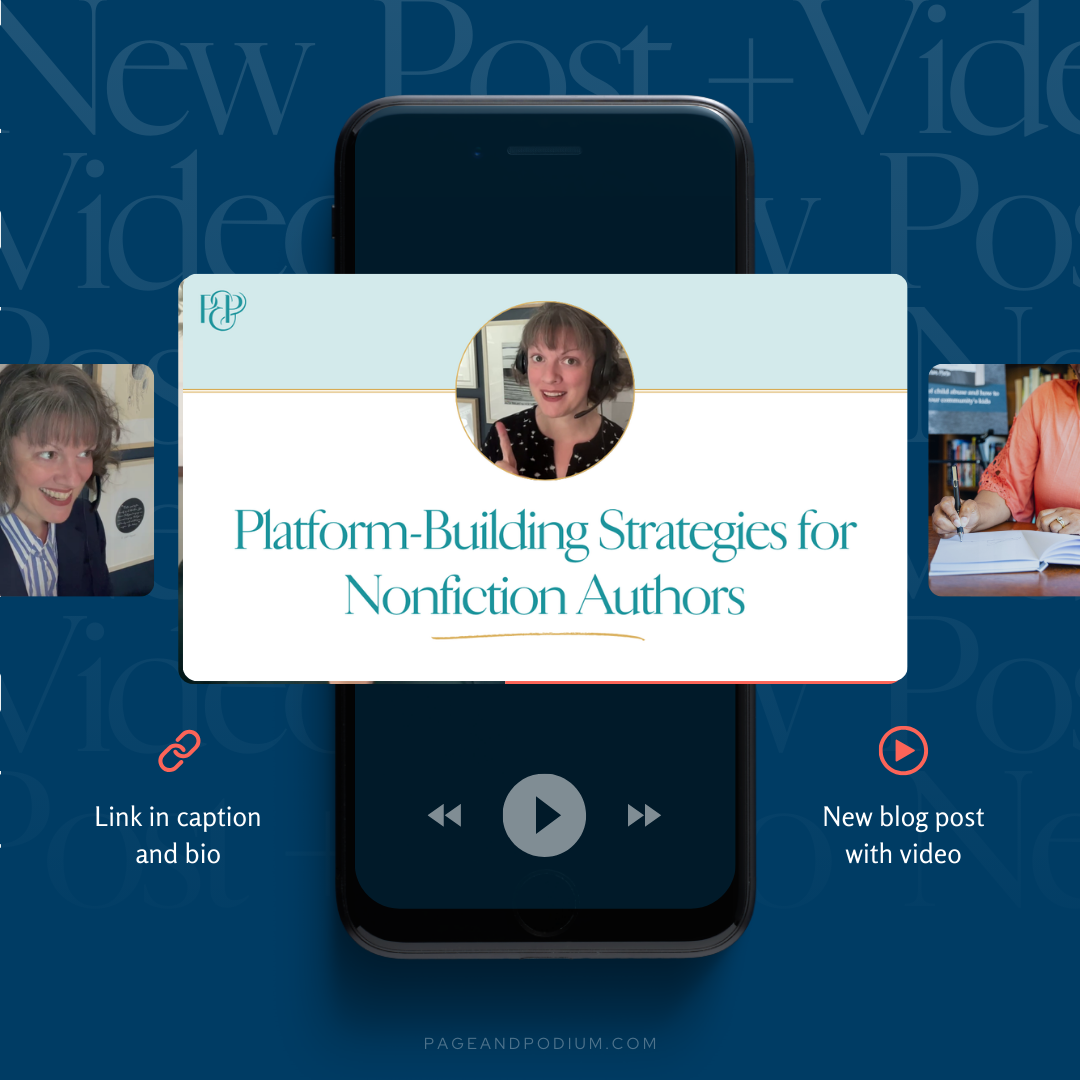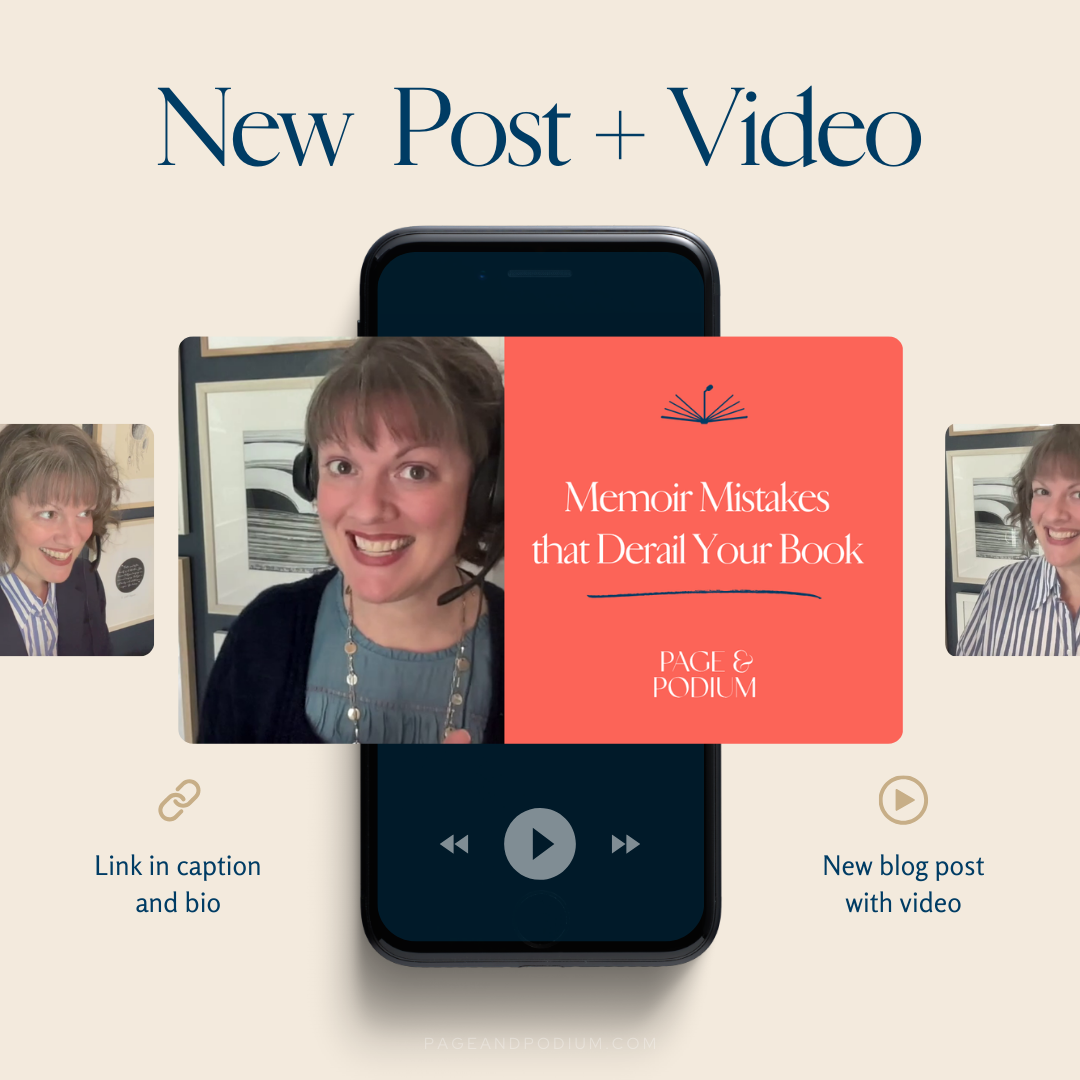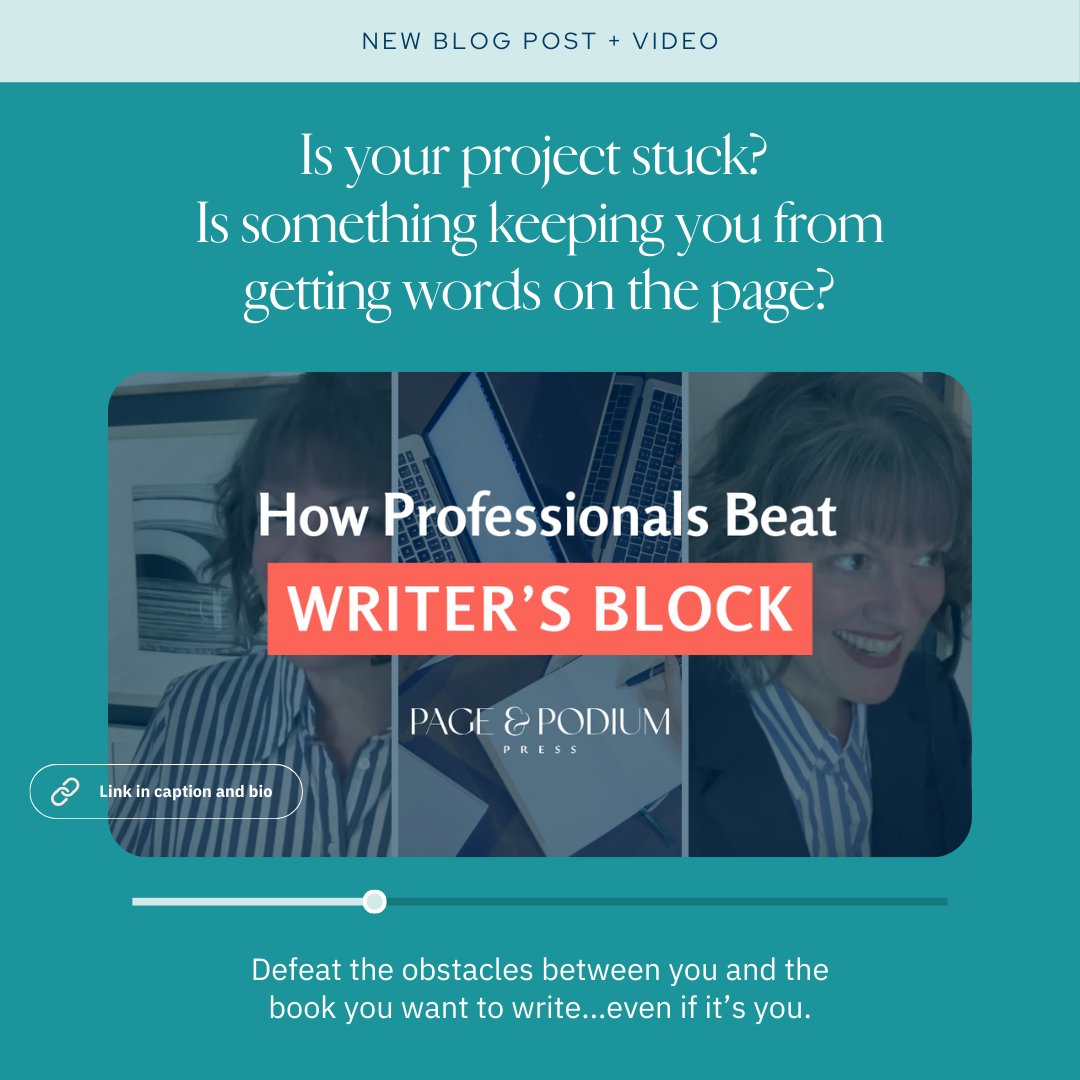Writing a memoir is an intimate journey of self-expression and reflection. It’s a chance to share your story with the world, leaving a lasting impact on readers and posterity. However, amidst the excitement of embarking on this literary adventure, there often lurks a formidable adversary: self-doubt. In the realm of memoir writing, self-doubt can manifest in various forms, casting shadows of uncertainty over your creative process and impeding progress towards your publishing goals.
In this article, I will be explaining how self-doubt plagues many memoir writers. Drawing insights from my decades of helping memoir writers, I’ll explore the common questions and fears that haunt authors and equip you with strategies to conquer these mental obstacles on your path to memoir mastery. Read on!
In my three decades of experience in the publishing world, I’ve witnessed countless individuals grappling with the same issue: a reluctance to seek the assistance they need. If you’re committed to crafting a memoir that resonates with authenticity and impact, you’ll require more than just raw material—you’ll need guidance, accountability, and a supportive community to make the process not just bearable, but enjoyable. You’re in luck because the Memoir Method offers precisely that. Head over to pageandpodium.com/memoir-method to discover more about our upcoming cohort and how you can join us on this transformative journey.
Understanding the Impact of Self-Doubt
Self-doubt, though insidious, is a universal phenomenon that transcends writing talent, resources, or even the quality of ideas. The silent saboteur derails more books than any other force on the planet.
You’re not alone in your struggle.
Even seasoned authors, those with numerous books under their belt, grapple with self-doubt from time to time. Surprisingly, some things that trigger our self-doubt may seem trivial in hindsight. However, acknowledging the omnipresence of self-doubt is the first step towards overcoming its influence.
Recognizing Self-Doubt
To combat self-doubt effectively, it’s essential to first recognize its presence. Common self-doubt questions plague writers’ minds, undermining their confidence and resolve. These questions range from “What if I can’t do it?” to “Who do I think I am to write this memoir?” By acknowledging and dissecting these doubts, writers can begin to reclaim control over their mindset and emotions.
Remember, there’s nothing wrong with you for experiencing self-doubt; it’s simply a natural response from our brain’s protective mechanisms. In reality, the risks associated with writing your book are minimal, as we’ll discuss later.
Addressing the Five Most Common Self-Doubt Questions
Question 1: What if I Can’t Do It?
This question is like the heavyweight champion of self-doubt inquiries. Even though it might not come up in coaching sessions or sales calls, it’s a constant whisper in the minds of aspiring authors. The fear of committing to writing a book, only to falter along the way, can be paralyzing. But here’s the thing: starting the process doesn’t equate to signing a binding contract with your doubts.
Let me share a secret with you: I firmly believe you have what it takes to write your memoir. I’ve conveyed this belief to countless individuals during consultations, and here’s why: If you can commit to a process, complete an application, engage in a call, articulate your book’s concept, and handle basic writing tasks like blogs, emails, or journal entries, you possess the fundamental skills needed. Writing a book may seem like an elusive feat, but it’s not reserved for a select few with an unteachable, innate talent.
So, the next time that little voice pipes up with, “What if you can’t do it?” counter it with, “What if I can’t? Would that be so bad?” Chances are, the consequences won’t be as dire as your fears suggest. Maybe writing a memoir isn’t your jam, but discovering that opens the door to other creative avenues. And remember, writing a book isn’t a mystical feat reserved for the chosen few—it’s a step-by-step process that anyone can tackle with determination and support.
Question 2: Who am I to Write this Memoir?
Ah, imposter syndrome—the age-old question of legitimacy. It’s a question that echoes in the minds of aspiring writers everywhere: “Who am I to share my story with the world?” The fear of inadequacy can be crippling, casting doubt on our worthiness as storytellers. But here’s the truth: your voice matters, and your experiences are unique.
Whether you’re contemplating a memoir or nonfiction piece, the nagging doubt of “Who do I think I am?” can be relentless. But instead of letting that question consume you, flip the script. Define who you are and why your story matters. Are you someone driven by a desire to share valuable lessons from your experiences? Or perhaps you’re fueled by a passion to shed light on injustices or preserve family history. By uncovering the deeper motivations behind your storytelling, you can silence the inner critic and step into your power as a writer.
The next time you find yourself questioning your right to tell your story, remember this: you are more than qualified. You are a survivor, a dreamer, a warrior of words. Your truth is worth sharing, and your voice deserves to be heard. Embrace the journey of self-discovery that is writing, and trust that your story has the power to touch hearts and change lives.
Question 3: What if it Doesn’t Turn Out Good?
The fear of producing subpar work is a common hurdle for memoir writers. It’s natural to worry about the quality of your writing, especially when you’re venturing into uncharted territory.
Consider the journey of writing my first book. I grappled with self-doubt at every turn. Despite my fears, I told myself, “You’re not writing a book; you are writing a few pages on XYZ topic, and then we’re going to call it good.” I persevered, embracing the creative process and allowing myself the freedom to make mistakes. I grew more confident with each draft, refining my work until it sparkled with brilliance.
But what if doubt still lingers? Enter the safety net of editing. A skilled editor can provide invaluable feedback and support, helping you refine your manuscript until it shines. There are two types of editors you’ll want to consider: a developmental editor and a copy editor.
Think of the developmental editor as your manuscript’s guardian angel. A developmental editor will evaluate your work as a whole, offering insights on plot, character development, pacing, and overall structure. Once your manuscript has undergone revisions, it’s time to enlist the help of a copy editor. Their keen eye for detail will ensure your prose is polished to perfection, free from grammatical errors, typos, and inconsistencies. With their assistance, your words will flow seamlessly, captivating readers from start to finish.

Question 4: What if I Can’t Get it Published?
The daunting prospect of publication is a concern that often looms large for aspiring authors. The fear of not being able to find a publisher for your manuscript can be paralyzing, but it’s essential to confront this fear and navigate it with clarity and confidence.
You need to acknowledge that the publishing landscape can indeed be challenging to navigate. With numerous factors at play, including market trends, genre preferences, and the subjective tastes of literary agents and publishers, securing a publishing deal is not guaranteed.
However, it’s crucial to recognize that the journey to publication is multifaceted and doesn’t necessarily end with traditional publishing. In today’s digital age, authors have access to a variety of publishing avenues, including self-publishing and hybrid publishing models. These alternatives offer authors greater autonomy and flexibility in bringing their work to the public.
Moreover, the rise of digital platforms and online communities has democratized the publishing process, enabling authors to connect directly with readers and cultivate their own audience. Through blogging, social media, and online platforms such as Wattpad and Medium, authors can share their writing, build a following, and even attract the attention of traditional publishers.
Question 5: What if People Laugh at Me?
The dreaded fear of ridicule! It’s a common concern that often lurks in the shadows of our minds. The mere thought of being laughed at can evoke discomfort and insecurity. But let’s shine a light on this fear and address it head-on.
Firstly, it’s important to acknowledge that the fear of ridicule is a valid emotion, but it’s also crucial to recognize that it’s often unfounded. The truth is, every author, no matter how celebrated, has faced criticism at some point in their career. It’s an inevitable aspect of putting your work out into the world.
Consider this: even acclaimed authors like Tara Westover, author of “Educated,” have encountered negative reviews. Despite its widespread acclaim, her memoir has garnered its share of detractors. And if a New York Times bestseller like “Educated” can’t escape criticism, then it’s clear that no book is immune to it.
But here’s the silver lining: criticism says more about the critic than it does about your work. People’s reactions are often a reflection of their own experiences, biases, and preferences. It’s important to remember that you can’t please everyone, nor should you try to.
Instead of fixating on the fear of ridicule, focus on your audience—the people who resonate with your message and connect with your story. These are the individuals whose opinions truly matter. By directing your energy towards serving and inspiring your supporters, you’ll find the courage to silence the voice of doubt.

Final Thoughts
When writing a memoir, self-doubt is but a thread, woven into the fabric of our creative journey. Yet, by unraveling its hold on our psyche and embracing the transformative power of storytelling, we can emerge victorious in our quest for memoir mastery. Through introspection and resilience, we’ll navigate the labyrinth of doubt with courage and conviction, forging ahead on our path to literary greatness.
So, dear memoirist, fear not the shadows that lurk in the corners of your mind. For within you lies the power to illuminate the darkness and craft a narrative that transcends self-doubt and resonates with authenticity and truth. With each word you pen and each story you share, you reaffirm your commitment to storytelling and defy the limitations of doubt. So, write with courage, write with conviction, and above all, write with heart.
Your memoir awaits, and the world is eager to hear your story.
In my team’s 30-plus years in publishing, we’ve witnessed a recurring pattern: women often hesitate to seek the support they need. If you aspire to craft a memoir you’re truly proud of, you’ll require training, accountability to maintain your progress, and supportive guidance to ensure the process is enjoyable. Now is your opportunity to join the next cohort of the Memoir Method, a group program tailored specifically to assist women in writing and completing their memoirs. Head over to pageandpodium.com/memoir-method to learn more and apply. I can’t wait to meet you.



